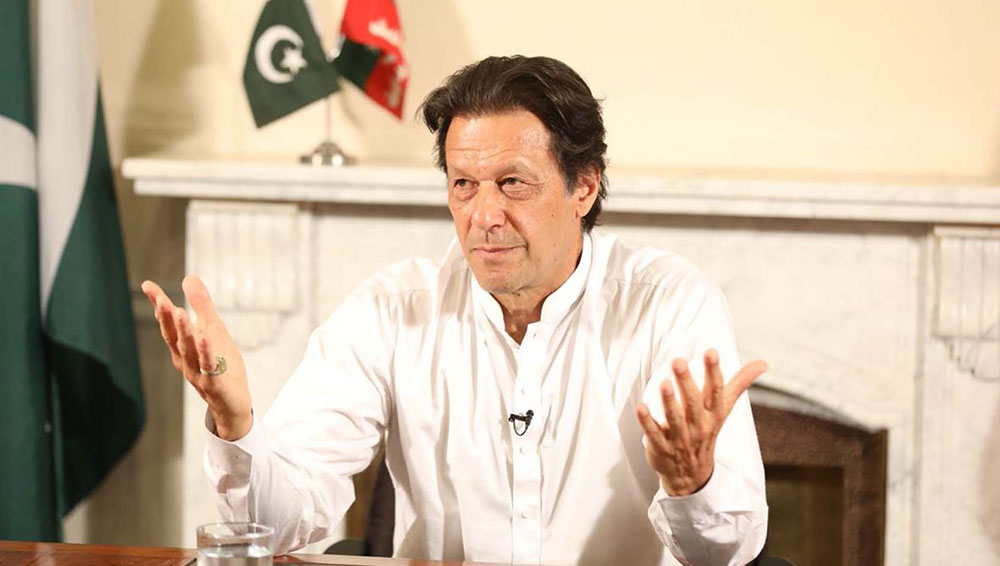ASIA’S ACQUITTAL WELCOMED IN UK
- 10 Nov - 16 Nov, 2018
As Pakistan still celebrates its democratic jamboree, it would have to be said that the reaction to the recently concluded elections in Pakistan out here is a bit more mixed.

On one hand, Imran Khan’s connections with the UK, a former British wife, two sons who are British and live in the UK – and are likely to do so throughout their lives - and the fact that he spent his formative years at premier British educational institutions, work greatly in his favour. The British media has been at pains to point out the number of Pakistani leaders who have studied at British institutions but in Imran Khan’s case it is more than just that. Imran really gelled with British society at the highest level and that was due to much more than just Oxford. Or the cricket. It was his entire persona, the looks added to the fact that he was a sporting superstar plus the fact that in those days he appeared to love the good life just as much as the highest strata of British society.
Since those heady days of the 70s and 80s, although the highest strata of British society has continued in its flippant and irresponsible ways, Imran’s life and values underwent a sea change, much of it noticed by the media here and not always with appreciation. His views on the Taliban and how best they may be handled, as indeed the epithet of ‘Taliban Khan’ that he earned in Pakistan, have been the subject of much comment and of course, none of it has been positive. If you step out of line with any western political objective, you are almost certain to fall foul of the media.
Yet, for all that, the coverage has been largely fair. Imran’s anti-corruption credentials have been welcomed as something that Pakistan really needs, although at the same time it is pointed out that it is rather simplistic to think that this alone could solve Pakistan’s economic woes. And although Imran’s own credentials for financial propriety are beyond any doubt, that alone is never enough. This is a fish that does not necessarily rot from the top.
In fact, the financial conundrum that Pakistan faces today is pointed out as being the foremost problem that Imran’s government will face and it has no easy overnight solutions. If the new government is driven to seek the assistance of the IMF, that could leave it with little space to manoeuvre and put its own political priorities in place. Imran has a very creditable plan in giving top most priority to human development and his heart and mind are both exactly in the right place when he says that the country’s internal revenues have to be increased through a widening of its tax base. But such moves are hardly popular with those who have to pay taxes, especially if it is a burden they are not accustomed to carrying. Yet, if Imran can achieve that, he would have done his country a service infinitely greater than winning the World Cup.
One of the issues that appears to have resurfaced repeatedly out here is the question of the ‘legitimacy’ of the Pakistani electoral process. The cries of ‘foul’ by the losers are, of course, nothing new, but the events that led to the elections are perhaps giving these cries greater credibilty than they usually receive, even though the team of observers from the European Union appears to have given the 2018 elections a largely clean chit. The role of the so-called ‘establishment’ is widely commented upon and the stand taken by the PML-N and the MMA, with tacit support from the PPPP, seen as a potentially destabilising factor. Which it could potentially be. But apart from the madrassah backed hordes of the MMA, neither Bilawal Bhutto nor Shahbaz Sharif would fit most people’s description of rabble rousers and in any case, the PTI’s victory has been so overwhelming that it would be difficult to explain it away by any allegation of rigging. Imran’s speech, in which he openly invited any objections promising that they would all be looked into, has had a very positive impact and is definitely the way to proceed forward if Pakistan to put up anything resembling an united front.
But the British, just like everybody else, make the mistake of seeing the world through their own value system and in doing so fail to realise that the ‘establishment’s control over the political process is not seen as being half as objectionable in Pakistan as it may have been here. They do not realise that in Pakistan it is seen as par for the course, with many even viewing it positively as a stabilising factor. Western apprehensions therefore, of future instability due to what is seen as an issue over the legitimacy of the polls, may be rather overstated.
But what is realised beyond question is the fact that something new has happened in Pakistani politics. The long line of dynastic politics has finally been broken and an overwhelming popular will has expressed itself. It does seem as if Imran could well have achieved what he has without any assistance from any quarter outside of the country’s democratic process. However, all that is in the past. It is the future that will assess whether any outside interference limits the government that Imran will bring in. Most western analysis suggest that foreign affairs and defence will be beyond the purview of the incoming government and if that should turn out to be the case, Imran’s victory will be diminished to that extent. But he can perform on the home front, he would have won the everlasting gratitude of his countrymen to whom that is the front that really counts. •
COMMENTS